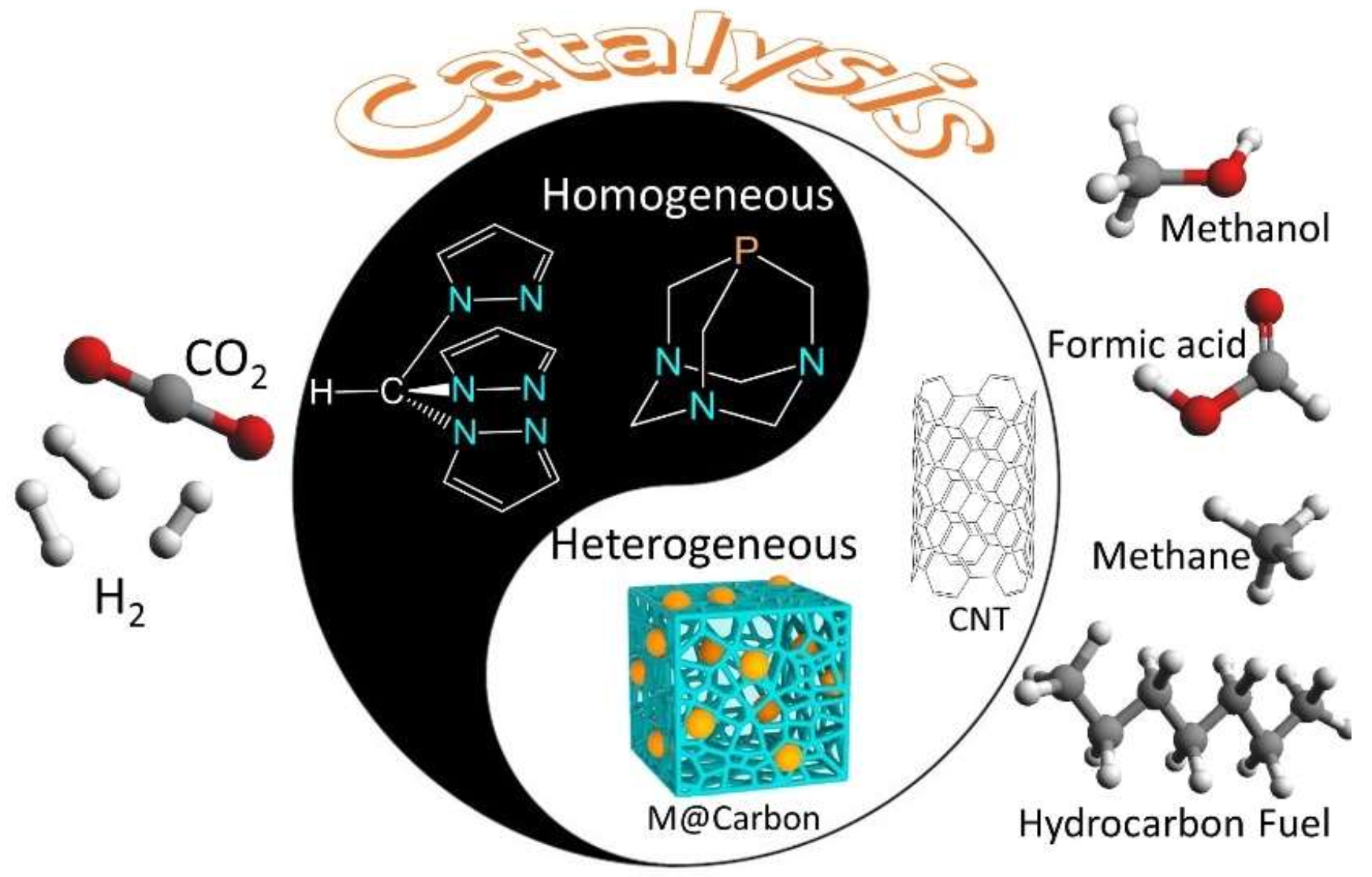
Doctoral Themes
Catalytic Hydrogenation of Carbon Dioxide to Added-Value Products
Supervisors
Abdallah G. Mahmoud, abdallah.mahmoud@tecnico.ulisboa.pt
Maria Beatriz P. P. Palma Nobre, beatriz.nobre@tecnico.ulisboa.pt
Maria Fatima Guedes da Silva, fatima.guedes@tecnico.ulisboa.pt
Registration Institution
Instituto Superior Técnico, Universidade de Lisboa
Project description
The main objective of the current research project is to develop homogeneous and heterogeneous catalytic systems for the hydrogenation of CO2 to methanol and formic acid, which are well-known liquid organic hydrogen carriers LOHCs, as well as hydrocarbon fuels.
The synthesis of liquid hydrocarbons via CO2 hydrogenation is a very important concept for the sustainable non-petroleum production of combustion hydrocarbon fuels.
Heterogeneous catalytic systems for CO2 hydrogenation to formic acid and methanol have been developed including oxide supported transition metal catalysts, main group metal/metal oxides and metal-organic framework (MOF) derived composites. For the homogeneous catalytic conversions, several metal complexes based on phosphine, pincer and N-heterocyclic carbene ligands have been employed.
A variety of ligands, namely 1,3,5-triaza-7-phosphadamantane (PTA) or tris(pyrazolyl)methane (Figure) and derivatives, will be used and a diversity of metal (Cu, Mn, Fe, Ni, Zn, V, Ru, Pd ...) architectures, including MOFs, are expected to be synthesised. They will be applied as homogeneous catalysts for CO2 hydrogenation to methanol and formic acid.
Metallic nanoparticles embedded in a carbon matrix will be obtained via pyrolysis of the MOFs. The catalytic activity of the obtained carbon nanocomposites will be evaluated for the CO2 hydrogenation to hydrocarbons in heterogeneous catalytic systems.
Keywords
Catalysis; Hydrogenation; Carbon dioxide

Check other PhD proposals at CQE Doctoral Themes page!!!
